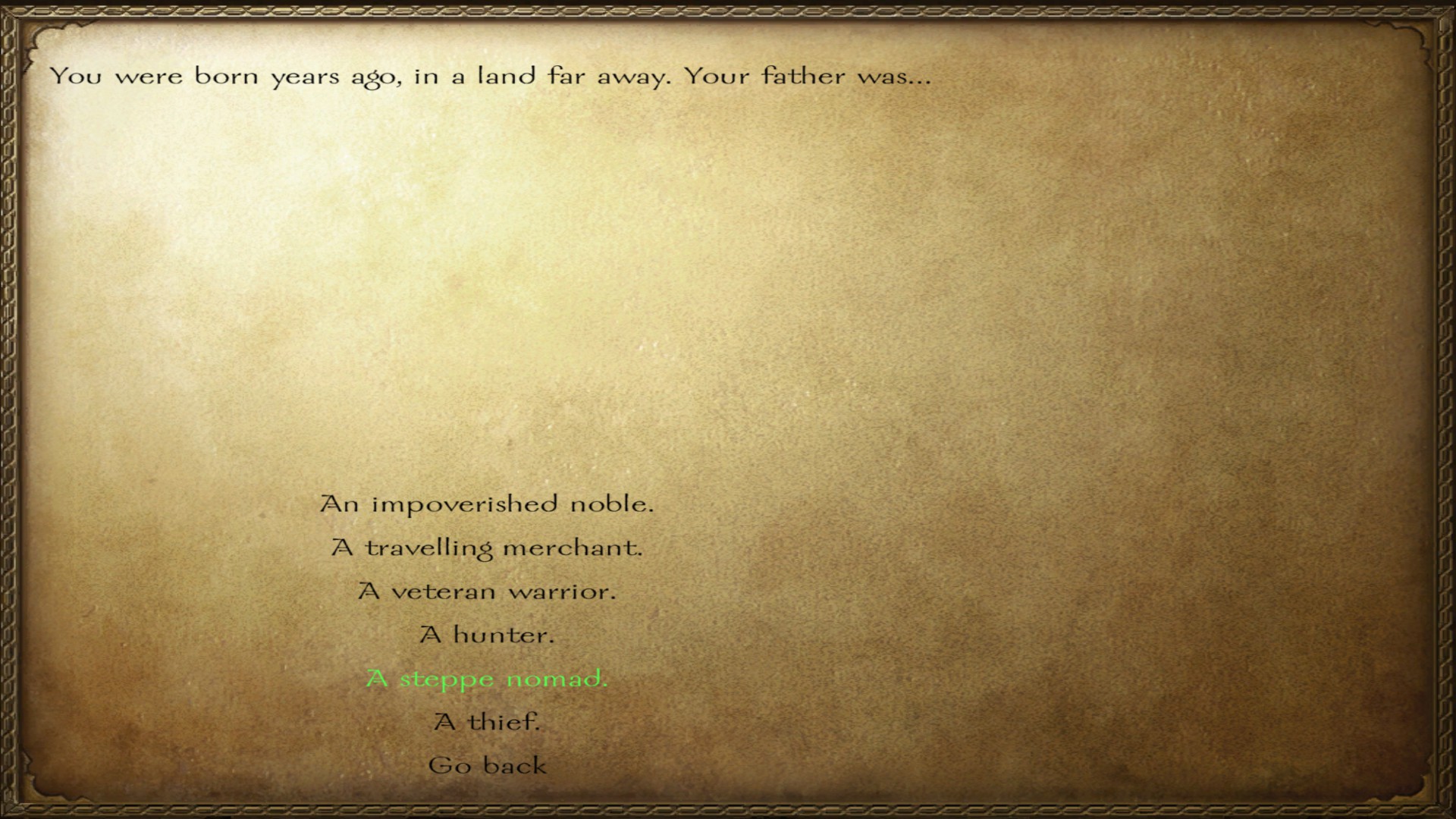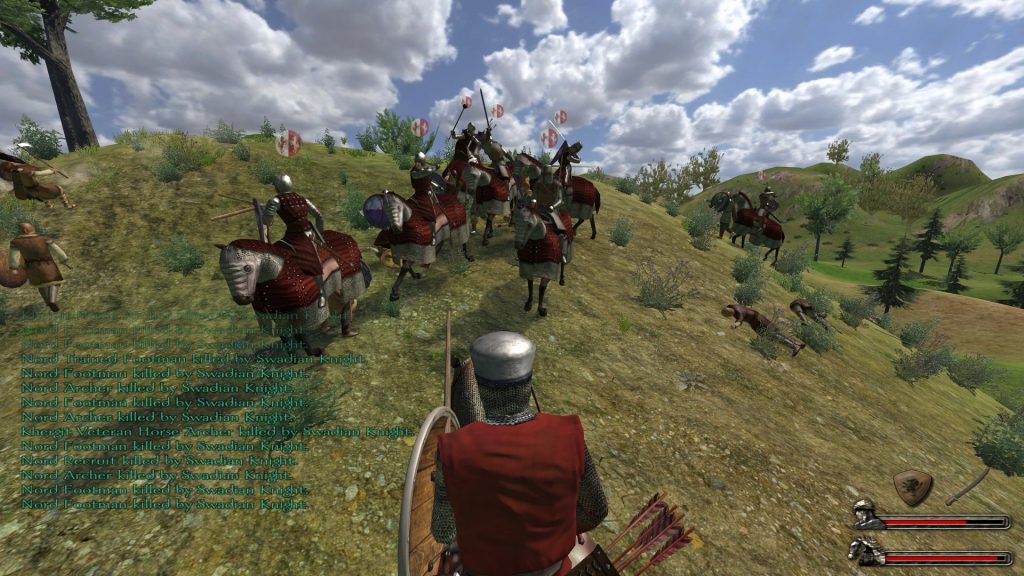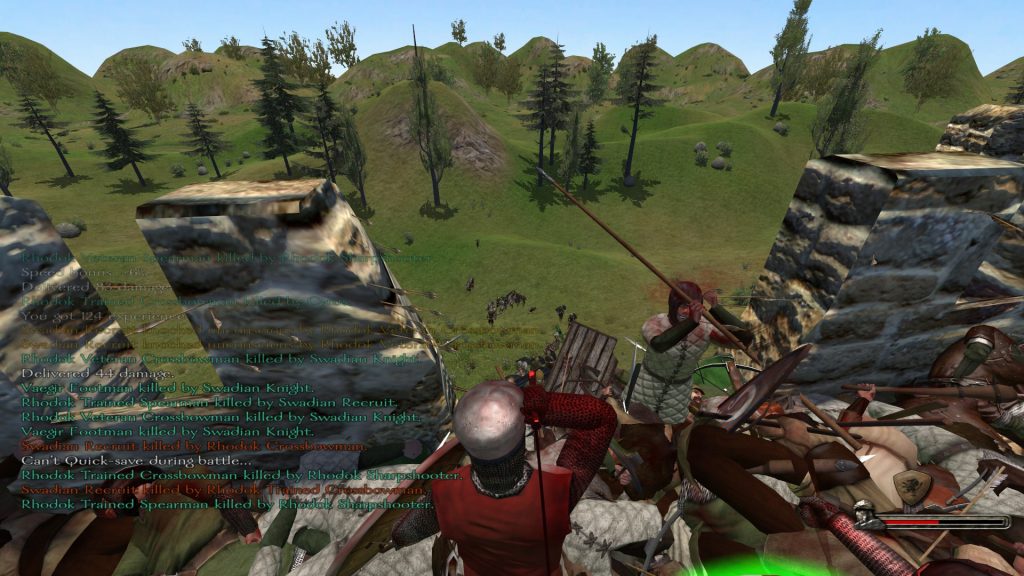Mount and Blade and the spirit of roleplaying
Saturday , 18, February 2017 PC Bushi Computer Games, Games 6 CommentsThere have been some interesting conversations on social media and throughout the blogosphere on what exactly an “RPG” is. Hell, there have been discussions on what qualifies as a “game.” I’m not going to dive too deeply into that right now, but suffice it to say I’m a lot more open to a wide and broadly-encompassing acceptance of either classification than some of my more wise and experienced peers. Still, I do sometimes ponder the oddity of how video games are classified these days. Anything with experience and leveling seems to now be considered to possess “RPG elements.”
I bring this up because I’ve been playing a lot of Mount & Blade: Warband lately. Though it’s branded as a strategy, simulation, action RPG, I’m not sure many roleplaying fans would actually consider it an RPG. Some of the more traditional among us may not even consider it a “game” as such, since there don’t appear to be any defined winning or losing conditions. In my opinion, however, the extreme sandboxy nature of M&B:W captures the spirit of a true, oldschool RPG much more adeptly than something like Baldur’s Gate or Final Fantasy.
At the start of the game, you are allowed to customize the appearance and gender of your character, and then presented with a number of questions about your background. Do you come from noble blood, or are you of more humble stock? Were you sent to school, or did you perhaps find an apprenticeship or serve as a squire? Before coming to Calradia, a land of opportunity for you, were you a tradesman, or a scholar, or a soldier? And why did you leave? Your answers have a very minute impact upon the rest of the game; the real purpose is to flesh out your character for your own purposes.

Once you’ve begun, there are a number of ways to make your way through the game.
Mayhaps you play the rogue – recruiting a dastardly band of cutthroats and deserters to pillage villages, sack caravans, harass the common folk, and sell captives as slaves to enrich yourself. You could gather a band of stout lads and run your own mercenary troop, hiring out your services to whichever kingdom you fancy. Trading is also a lucrative prospect – traveling between towns and seeking goods to buy and sell as prices fluctuate. Once you gain enough prominence, you may offer your sword or even be offered a vassalage by one of Calradia’s monarchs. If you encounter a pretender to one of the six thrones, you may decide to aid them in their cause to win a crown. Or you may choose to proclaim yourself a ruler in your own right. Should you choose the last course, you may even desire to wage a great campaign to unite the lands as one kingdom under your rule. There are many ways to play the game.
Warband’s mechanics are deep and broad enough that within the limits of the system, different players may adopt disparate styles of play. Although recruiting soldiers is pretty essential to the game (unless you want to just travel from town to town participating in tournaments and avoiding bandits as best you can), you may decide to favor one faction and culture or integrate the troops of different nations. You may also go for vast numbers of weak, cheap, easily-replaceable soldiers (provided you have the leadership to lead that many men), or you may instead build a smaller core of elite soldiers. For my part, I tend to favor a large contingent of knights and crossbowmen, with a smattering of Nord huscarl infantry to support my archers.

You also must decide whether to join the fray yourself or to remain safely behind, either providing some ranged support or else observing the battle and directing your soldiers as you deem fit. Personally, I can rarely resist the urge to lead my cavalry charges, cutting down foes with each pass.
There are various other decisions to be made – whether and whom to wed, where to base your capital (should you start your own kingdom), how to garrison your holdings, whether to invest in your own businesses and if so what kind. The list goes on.

Warband is very much a “what you make of it” kind of game. If you have a vivid imagination and enjoy games that allow you room to make your own story as you go, it’s really a splendid exercise. If you wish to play one of the iterations of Conan – leading bandits or mercenaries or ruling a kingdom won by blood and steel, this game may be for you. I find that it’s right up my alley. The one time I actually played D&D (as opposed to DMing), my character was an upstart diplomacy-rogue. Much like the NPC charlatan Rolf in Warband, actually, he claimed to be highborn – the son of a noble merchant. In fact he was of pirate stock, though his family masqueraded as legitimate import-exporters in order to disguise their shady dealings. Though most D&D players are interested in amassing wealth, my character was looking too for power and influence. When he had the opportunity to stop at home to visit with his mother, he passed all of his hard-won dungeon crawling money to her for investment in the family business. Should the campaign have gone on longer, I’d have liked to see if that investment would have paid off.
In Calradia, I find myself behaving similarly. Cyrus was born to a soldiering family, not a brood of ignobles. However his aspirations are lofty. After working for some time as a mercenary to gain experience and build a reputation, he was eventually offered a fiefdom by the king of Swadia. He accepted, and during the course of his lordship he won many new properties and gained the respect and favor of many other lords, both Swadian and of rival kingdoms. After a time, however, he grew troubled with the constant strife of Calradia. The six kingdoms, locked in a never-ending series of small-scale wars, suffered. Perhaps not the nobility – lords were occasionally exiled for treason, stripped of property and standings, but the nobles were never the ones to fall in battle. Rather the common soldiers bled, and the farmers and merchants were forced to sate the hunger of greedy counts and emirs seeking to plunder and pillage. Banditry grew rampant while lords spent their men and gold, fighting to swap bits of land. In order to bring peace, the land would have to be united. And so Cyrus sent his companions forth to spread word of his right to rule, and how he would do so justly. Eventually his liege king Harlaus denied Cyrus the holding of a keep he and his men had taken from an enemy at great cost. Looking to the greater good, Cyrus used this snubbing as a pretext to rebel, revoking his allegiance and declaring his own kingdom. Now he’s locked in a struggle to wrest the land from unworthy rulers, slowly gaining power and territory as he moves to unite Calradia under a single crown.
This is the main thrust of the story I’ve built so far, and for me it’s more memorable than the pre-written plots of many modern video game RPGs. To me, the flexibility and openness to create such stories for oneself are integral to the true spirit of roleplaying.
PCBushi can also be found on Twitter or at the PCBushi blog, where he ruminates on scifi/fantasy, games, and other spheres of nerd culture.
The Third Age mod is one of the best Lord of the Rings games I’ve played.
-
PCBushi says:
I’ve only tried the Diplomacy mod thus far, but the LOTR one does look interesting!
That is a superb game. Rod Walker has spent many happy hours riding down bands of Sea Raiders and taking their stuff.
-
PCBushi says:
Haha yes, sea raiders make for some fun opponents. Love the “Arnold” voices. “Nice head!”
-
Rod Walker says:
Those are hilarious.
RW’s favorite quest is the one from the Guild Master where you have to ransom the Kidnapped Girl. It’s fun to pay the ransom, rescue the Kidnapped Girl, and then promptly annihilate the bandits.
-
Jeffro, can you switch out the Wikipedia link at the beginning to the Infogalactic one. Don’t support the enemy.